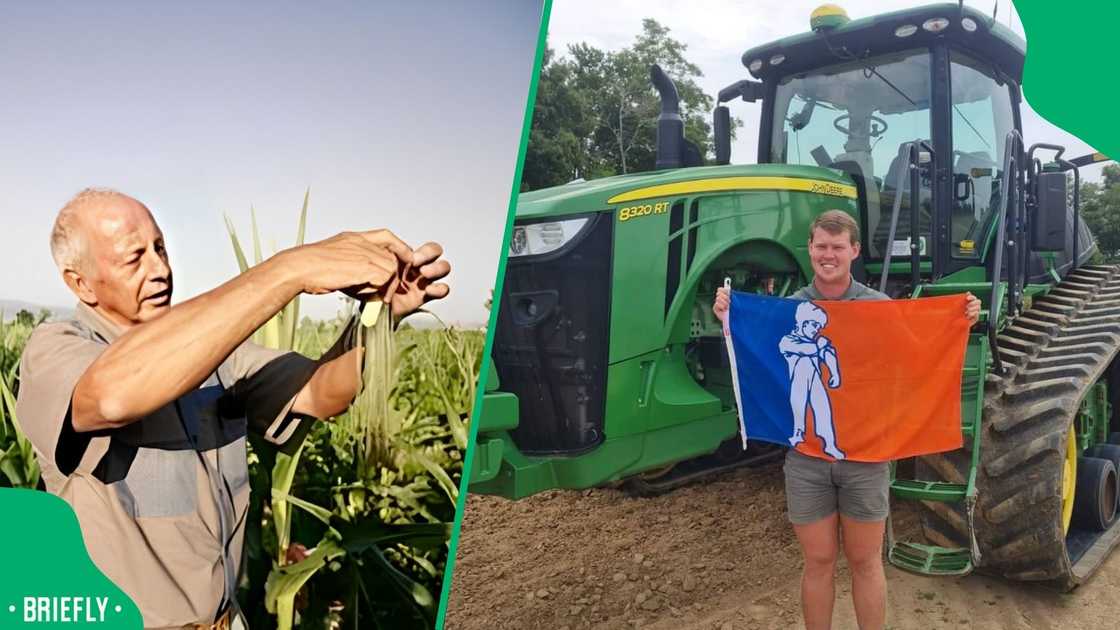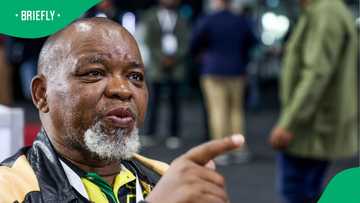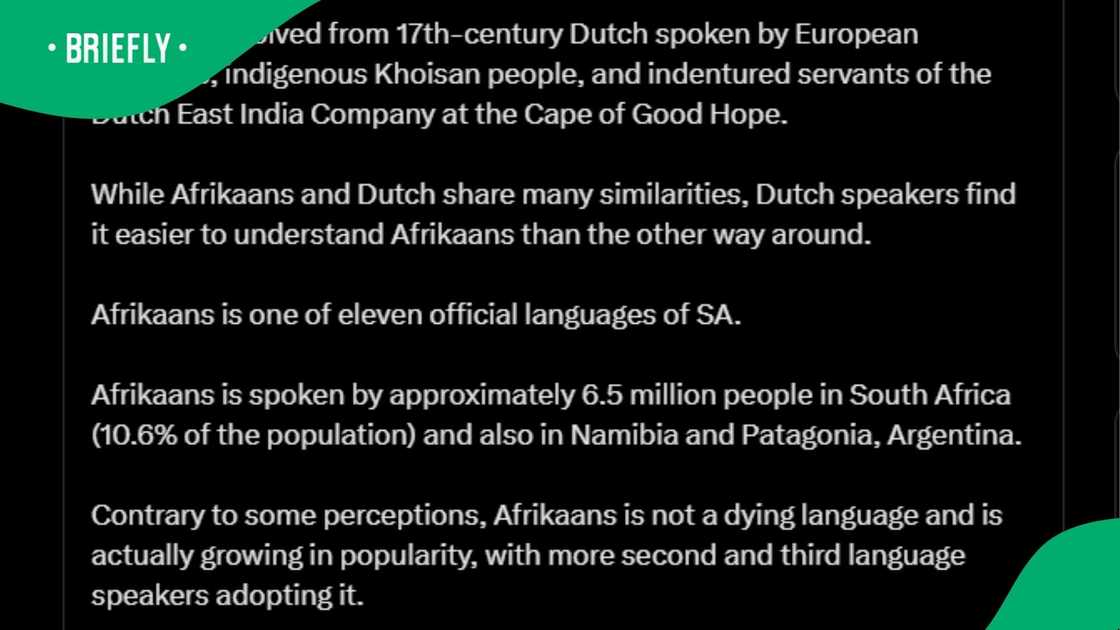“A Melting Pot of Languages”: 100 Years Strong: Afrikaans Marks a Milestone in SA History
- Afrikaans is celebrating its centenary as an official language in South Africa, with content creator @Volkstaat10 on X highlighting its rich history
- The political party AfriForum has launched a special letter project, travelling to Paarl to commemorate the occasion
- Despite perceptions that it might be declining, Afrikaans remains vibrant with approximately 6.5 million mother-tongue speakers (10.6% of South Africa's population)

Source: Twitter
Orania-based content creator @Volkstaat10 on X has shared a post on the first of May celebrating 100 years of Afrikaans as an official language in South Africa. The post highlights the history and current status of what many consider to be Africa's youngest language, which has roots in Dutch but has developed into a distinct tongue with its rich heritage.
The political organisation AfriForum marked the occasion with a special project, sharing:
"#Afrikaans on tour. If you drive past us on the N1, honk and send a photo in the comments. This is our seriousness. #Afrikaans Officially 100." They mentioned that several institutions from the @SBeweging have launched a letter project heading to Paarl as part of the centenary celebrations.
Paarl holds special significance in Afrikaans history as it's home to the Afrikaans Language Monument (Taalmonument), which was put up in 1975 to commemorate Afrikaans being declared an official language alongside English in 1925.
PAY ATTENTION: stay informed and follow us on Google News!
View the X post below:
A unique cultural blend
@Volkstaat10 described Afrikaans as a melting pot of languages that developed in South Africa from Dutch origins in the 17th century. While it shares similarities with Dutch, Afrikaans has evolved into a distinct language with simplified grammar and pronunciation, influenced by various cultures, including Malay, Khoisan, German, Scottish, French, and Bantu languages.
The post explains that Afrikaans began evolving when European colonists, indigenous Khoisan people, and servants of the Dutch East India Company interacted at the Cape of Good Hope. Today, it is spoken by approximately 6.5 million people in South Africa, as well as in Namibia and some communities in Patagonia, Argentina.
The Afrikaans culture extends beyond just the language, encompassing unique food traditions like koeksisters and bobotie, as well as cultural expressions. Annual festivals celebrating Afrikaans arts and culture, like the Klein Karoo National Arts Festival and Innibos Lowveld National Arts Festival, continue to draw large crowds.

Read also
Gwede Mantashe would urge black South Africans to build in Orania if he were president, Mzansi split
Contrary to some beliefs, Afrikaans is not exclusively spoken by white South Africans. Fewer than half of the Afrikaans mother-tongue speakers in South Africa are white, reflecting the language's diverse cultural heritage and continued relevance in modern South Africa.

Source: Twitter
Social media reactions
@Xinyori Xahumba commented:
"Note the emphasis on Khoisan people. It's deliberate and meant to push a tired narrative."
@Arnold_Von_Mash asked:
"How do the Khoisan fit into this? 🤔 💭"
@b03sm4n observed:
"Before it became politically expedient to diminish Afrikaans, you could find stats on what % of SAns could understand it (hint: most widely understood language in SA) - now all you can find is mother tongue statistics, which is just a racial census."
@EddieDeepfield shared:
"Two roots supplied the Afrikaans language. Cape Dutch and Indonesian Dutch. Came together with slaves and masters speaking a pidgin Cape and Indonesian Dutch in the kitchen. Became an official language only a century ago."
Related stories about Afrikaners
- Briefly News recently reported on how the Economic Freedom Fighters (EFF) in the Northern Cape called for a legal review of Orania's existence.
- A South African farm worker shared a video tour of his comfortable house in Montana, USA, where he lives with his father while working on an H2A agricultural visa.
- An Afrikaans-speaking farmer posted a heartfelt TikTok message addressing both fellow farmers and their families about the challenges of the H2A visa program.
Source: Briefly News


